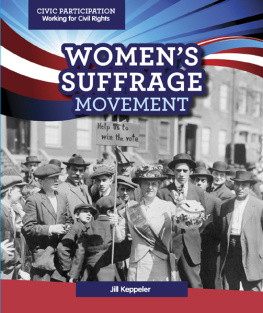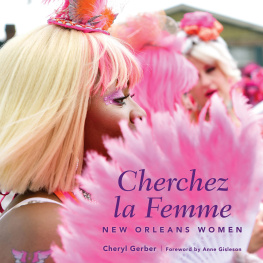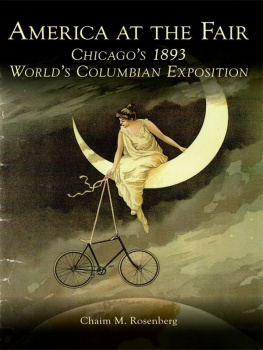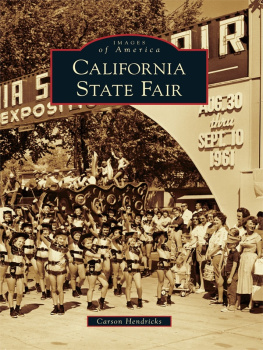Miki Pfeffer - Southern Ladies and Suffragists: Julia Ward Howe and Womens Rights at the 1884 New Orleans Worlds Fair
Here you can read online Miki Pfeffer - Southern Ladies and Suffragists: Julia Ward Howe and Womens Rights at the 1884 New Orleans Worlds Fair full text of the book (entire story) in english for free. Download pdf and epub, get meaning, cover and reviews about this ebook. year: 2014, publisher: University Press of Mississippi, genre: Romance novel. Description of the work, (preface) as well as reviews are available. Best literature library LitArk.com created for fans of good reading and offers a wide selection of genres:
Romance novel
Science fiction
Adventure
Detective
Science
History
Home and family
Prose
Art
Politics
Computer
Non-fiction
Religion
Business
Children
Humor
Choose a favorite category and find really read worthwhile books. Enjoy immersion in the world of imagination, feel the emotions of the characters or learn something new for yourself, make an fascinating discovery.

- Book:Southern Ladies and Suffragists: Julia Ward Howe and Womens Rights at the 1884 New Orleans Worlds Fair
- Author:
- Publisher:University Press of Mississippi
- Genre:
- Year:2014
- Rating:5 / 5
- Favourites:Add to favourites
- Your mark:
Southern Ladies and Suffragists: Julia Ward Howe and Womens Rights at the 1884 New Orleans Worlds Fair: summary, description and annotation
We offer to read an annotation, description, summary or preface (depends on what the author of the book "Southern Ladies and Suffragists: Julia Ward Howe and Womens Rights at the 1884 New Orleans Worlds Fair" wrote himself). If you haven't found the necessary information about the book — write in the comments, we will try to find it.
Women from all over the country came to New Orleans in 1884 for the Womans Department of the Cotton Centennial Exposition, that portion of the Worlds Fair exhibition devoted to the celebration of womens affairs and industry. Their conversations and interactions played out as a drama of personalities and sectionalism at a transitional moment in the history of the nation. These women planted seeds at the Exposition that would have otherwise taken decades to drift southward.
This book chronicles the successes and setbacks of a lively cast of postbellum women in the first Womans Department at a worlds fair in the Deep South. From a wide range of primary documents, Miki Pfeffer recreates the sounds and sights of 1884 New Orleans after Civil War and Reconstruction. She focuses on how difficult unity was to achieve, even when diverse women professed a common goal. Such celebrities as Julia Ward Howe and Susan B. Anthony brought national debates on womens issues to the South for the first time, and journalists and ordinary women reacted. At the Worlds Industrial and Cotton Centennial Exposition, the Womans Department became a petri dish where cultures clashed but where women from across the country exchanged views on propriety, jobs, education, and suffrage. Pfeffer memorializes womens exhibits of handwork, literary and scientific endeavors, inventions, and professions, but she proposes that the real impact of the six-month-long event was a shift in womens self-conceptions of their public and political lives. For those New Orleans ladies who were ready to seize the opportunity of this uncommon forum, the Womans Department offered a future that they had barely imagined.
Miki Pfeffer: author's other books
Who wrote Southern Ladies and Suffragists: Julia Ward Howe and Womens Rights at the 1884 New Orleans Worlds Fair? Find out the surname, the name of the author of the book and a list of all author's works by series.





